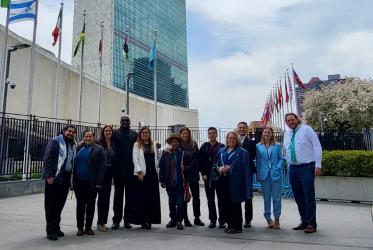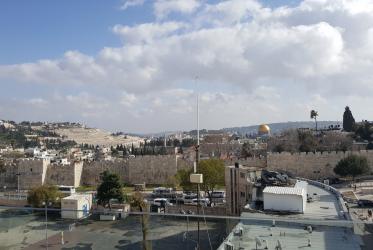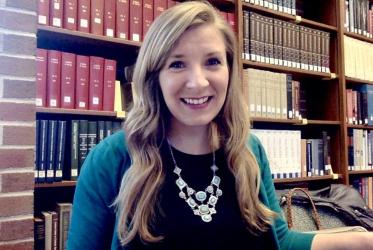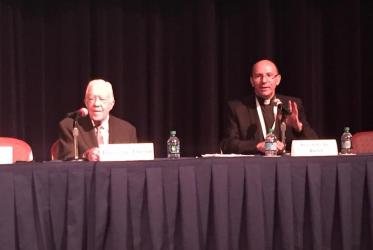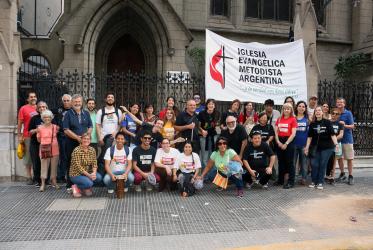Displaying 1 - 20 of 24
Dr Saïd Ailabouni: God is on the side of rejected, oppressed, occupied
12 September 2019
Faces of Hope raises awareness
07 March 2018
Churches help keep memories alive for Argentinian people
07 April 2016
Faith communities urge U.S. to resettle more Syrian refugees
14 September 2015
WCC mourns the death of Leopoldo Niilus
10 February 2015
Towards accessible and inclusive societies and churches in Latin America
15 September 2014
